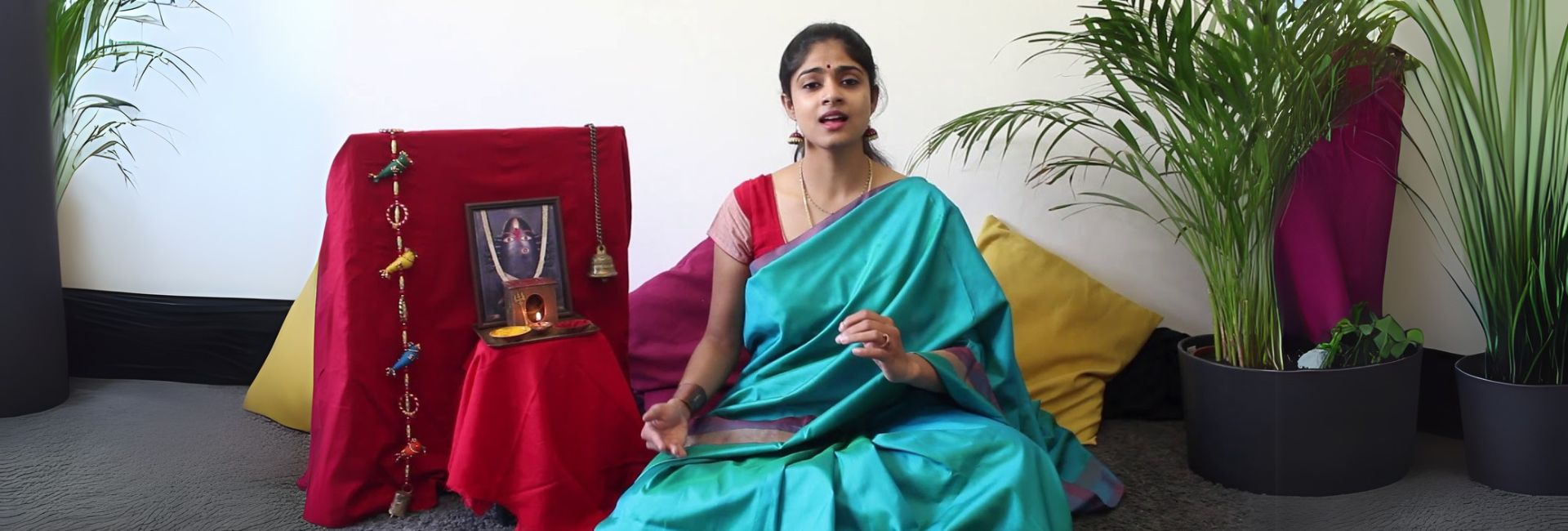(March 27, 2025) In Germany, Sivani Saraswatula is quietly transforming the cultural landscape with her soulful renditions of Carnatic music. In a country known more for its engineering and classical orchestras, she is proving that India’s soft power lies in its art and tradition. Audiences find themselves drawn to her performances — not merely for the mesmerising notes, but for the way she weaves centuries of history and spirituality into every melody. Here, in the heart of Europe, her voice has become a bridge connecting modern Germany with India’s rich heritage, reminding us that the power of music transcends language and geography.
Imagine a 31-year-old classical singer draped in sarees, with only the soulful sound of her tanpura by her side. Her YouTube videos capture her deep passion and dedication to classical Indian music. Whether it’s a delicate ghazal, a semi-classical tune, or a heartfelt devotional piece, her repertoire spans it all. And for the past eight years, she’s been calling Germany home, proudly carrying the torch for traditional Indian music — truly a Global Indian in every sense.
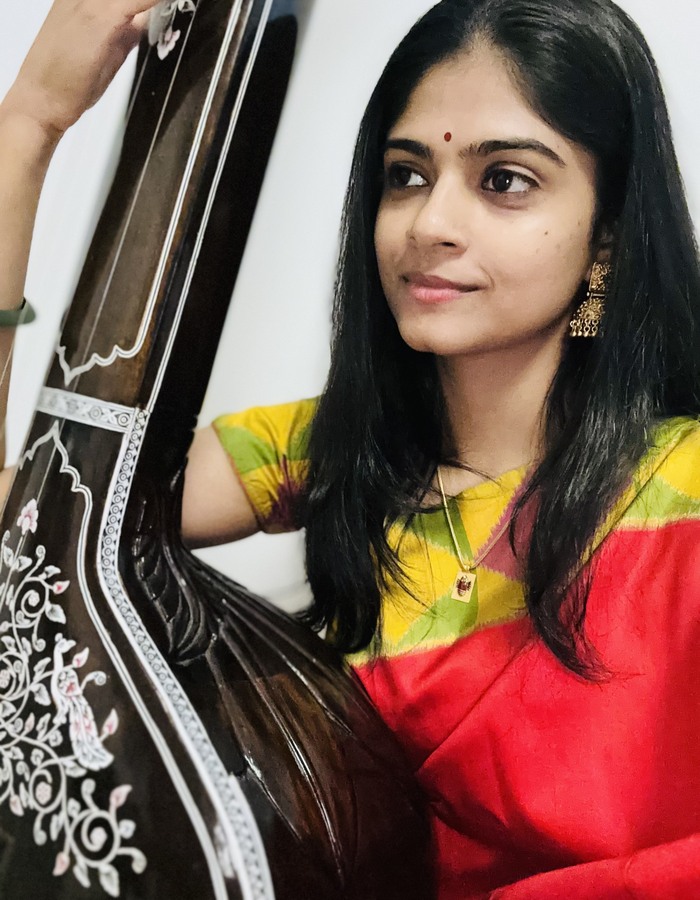
Sivani Saraswatula
Samathva: Bridging Carnatic Music, Balance, and Cultural Heritage in the Diaspora
In 2020, Sivani founded Samathva — a space dedicated to celebrating and teaching the timeless art of Carnatic music through workshops and classes. Samathva, meaning “equilibrium” or “balance,” reflects her deep conviction that classical art has the power to harmonise lives, especially for children. “Carnatic music is all-encompassing. It is devotional, spiritual, and philosophical. Vaggeyakaras, including Thyagaraja, Dikshitar, and Annamaya in Carnatic music, composed songs because they were on the path of liberation, which is the very essence of Carnatic music. It is rooted in a very profound understanding of life and has immense depth from which we can learn a lot,” she tells Global Indian. Through Samathva, Sivani is not just imparting musical skills — she’s offering a path to inner balance and cultural connection.
In Germany, where the Indian community is growing and finding its voice, Sivani’s work feels like coming home. Many in the diaspora are looking for ways to keep their cultural heritage alive, and her classes offer a relaxed space where ancient melodies bring memories of India to life. More than just music lessons, these sessions are a casual meet-up that strengthens community ties and gives people a sense of balance in a foreign land. Through her dedication, Sivani is not only preserving an art form but also helping the diaspora rediscover the comforting rhythms of their heritage.
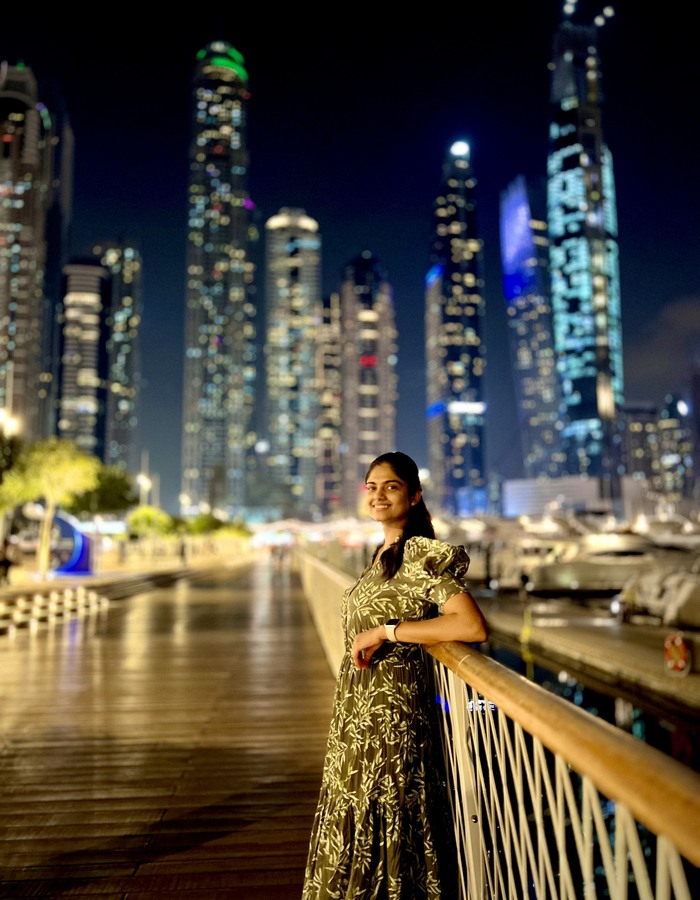
Bayern Baithak: Bridging Traditional Indian Music and Modern Audiences
Championing Indian music on a global stage, Sivani has also introduced Bayern Baithak — a unique initiative named after the city she calls home. This project is all about bridging the gap between artists and their audiences. “This is an initiative to bridge the gap between artists and audiences. Over two hours, a music and dance performance are conducted in close interaction with the audience.” After the performances, the sessions transform into interactive discussions where attendees explore the art, ask questions, and share thoughts on how Indian classical arts can reach a broader, younger audience.
These baithaks are an important form of outreach for her to promote Indian music on the international stage and bridge the gap between the art and its audience. She says, “Today people are moving away from Carnatic music, and it is not their fault. They relate to film music. Carnatic music is an acquired taste, and the audience must be given tools to understand the music. These baitaks and the discussions on music afterwards are my way of integrating the audience into the world of Nirgun bhajans, semi-classical, and folk music.”
View this post on Instagram
Community is a crucial factor for musicians in traditional artforms. Sivani operates without one—be it accompanying musicians or avenues to perform—yet thrives in spite of it. A firm believer in self-motivation, she forges ahead because the relationship she shares with music is intrinsic to her very being. Living in Germany, she is also aware of the limited avenues but is keen on leveraging technology to reach wider audiences.
How Family, Carnatic Music, and Bharatanatyam Shaped Sivani’s Path
Sivani’s love for the arts kicked off when she was just seven. She remembers, “It was a Punjabi wedding, and I remember coming home and persuading my mother to enroll me in a dance class.” Her mother, who was a singer herself, agreed—but only on one condition: she’d also take music lessons. And that’s how it all started.
Growing up, she immersed herself in both Carnatic music and Bharatanatyam. Despite the demanding training that these classical forms require, she says it never felt taxing. She recalls, “I was always an early riser, so I would love to rush to my classes. In fact, Sundays and holidays meant training all day, and still, I fail to recall a single moment when I felt that I was forced to do that. Being associated with the arts shapes you in many ways, and I am thankful for that.”
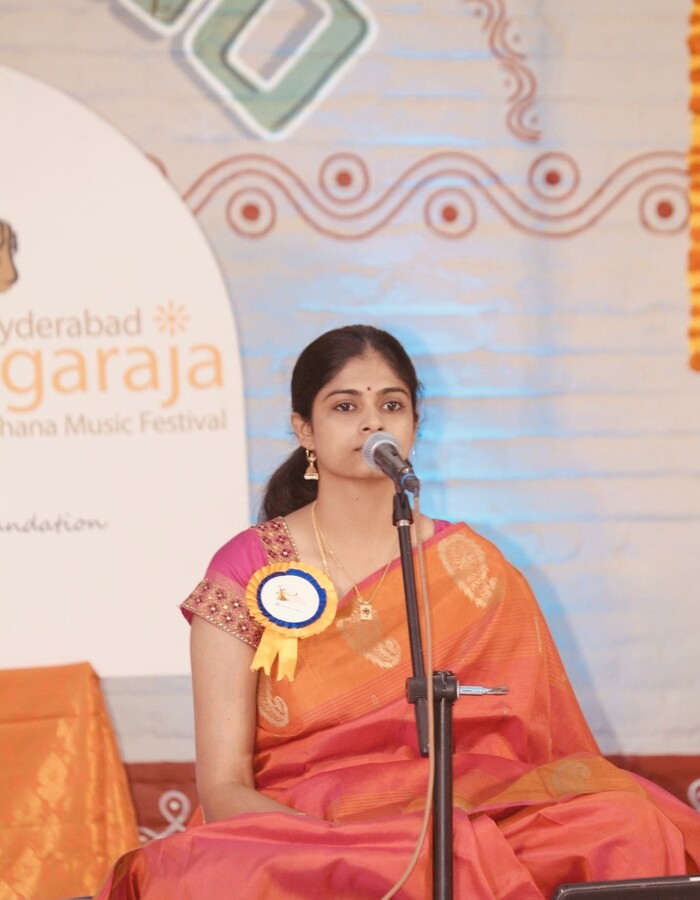
Even after earning a degree in mechanical engineering from Osmania University and spending four years at Infosys, music was never far from her heart. In 2015, she took a bold step and joined the popular Telugu reality show, Paadutha Teeyaga. Her performances—especially her renditions of Thaye Yashoda and Sathyaharishchandra Padyam, the latter moving the legendary SP Balasubramanyam to tears—left a lasting impression. Reflecting on that experience, she says, “It was a very challenging experience, as I was used to singing classical music and not movie songs, and both are completely different. I was guided by our mentor, Shri BV Srinivas, and the whole team of Padutha Teeyaga, who were extremely warm and supportive.”
Navigating Culture Shock and Embracing Carnatic Music: Sivani’s Journey in Germany
Immediately after her win, she lent her voice to a few films—’Leo’ in Kannada, ‘Needi Naadhi Oke Kadha,’ and ‘Virata Parvam’ in Telugu—before tying the knot and moving to Germany. Even after relocating abroad, her love for Carnatic music never faded.
Living in Europe came with its own challenges, bu Sivani’s passion kept her on track. She made it a point to practice every day, take online lessons from her gurus, and shuttle back and forth between India and Germany to perform and perfect her art. Even with the hurdles of time zones, she never stopped training. For her, classical music is a lifelong journey and a true form of devotion. Today, she continues to learn from great mentors like the prolific Hyderabad Brothers (D Raghavachary and the late D Seshachary) and Malladi Sriramprasad.
How did the girl from Hyderabad adjust to Germany? She laughs, “It was a culture shock at first. The quiet could be discomforting to many, but for me it was an organic adjustment, and the lifestyle is very different—it is extremely organized and closer to nature, so I’m used to it now.” Being fluent in German certainly helped too!
When she’s not recording music, you’ll find her spending quality time with her husband, Advait Valluri—who happens to play the guitar—watching a movie now and then, or engaging in her favorite sports like badminton and cycling (a love sparked during her school days as an NCC cadet). She also enjoys traveling with friends to unwind.
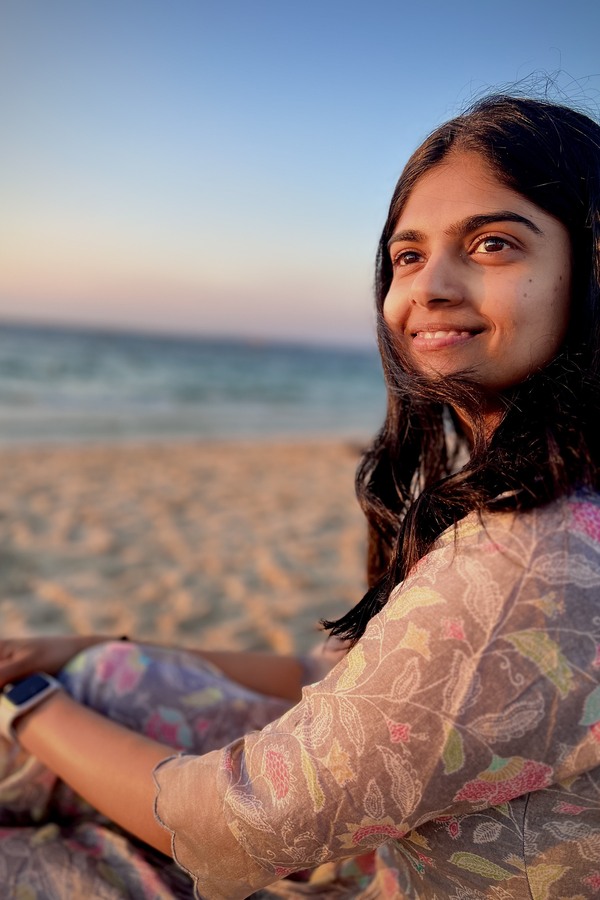
Grateful for a family that has always had her back, Sivani is clear about her calling: it lies in the music of her motherland. With her gentle yet powerful voice, she’s steadily breaking myths about traditional art forms—one raga at a time.
From her roots in Hyderabad to making waves in Germany, she’s built a bridge between cultures with her soulful music. Her story is a reminder that no matter where you are in the world, staying connected to your roots can light up a path forward, inspiring others to follow their own dreams.

